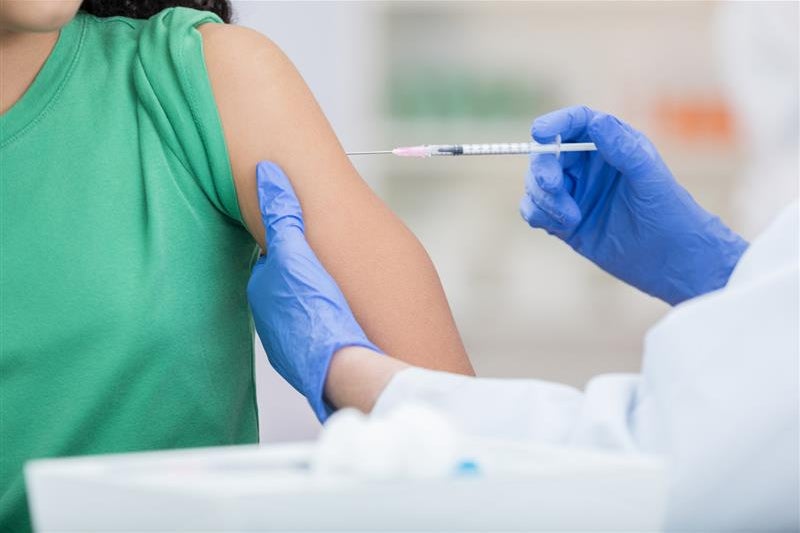Cancer Information
HPV
Human papillomavirus

What is HPV?
HPV stands for human papillomavirus.
HPV is a common sexually transmitted infection that usually shows no symptoms and goes away by itself but can cause serious illness.
HPV is responsible for:
- almost all cases of genital warts and cervical cancer
- 90% of anal cancers
- 78% of vaginal cancers
- 25% of vulvar cancers
- 50% of penile cancers
- 60% of oropharyngeal cancers (cancers of the back of the throat, including the base of the tongue and tonsils). 1
The virus is spread through intimate contact with genital skin and can infect both men and women. Condoms offer some but not total protection from HPV as they do not cover all the genital skin. You can be exposed to HPV the first-time sexual activity occurs or from only one sexual partner.
HPV and cancer
There are different HPV types - some are considered "low-risk" and others "high-risk". Low-risk HPV types cause genital warts and do not cause cancer. Some high-risk HPV types can cause serious illness including cancer.
In most cases the immune system clears HPV from the body. However, there are times when the body does not clear HPV: usually when the infection is with high-risk types. We call this 'persistent' HPV infection.
Persistent HPV infection can cause abnormal cells to develop on the cervix which may develop into cervical cancer if left untreated. Cervical cancer is the most common type of cancer caused by HPV, persistent infection also causes less common cancers affecting men and women, including anal, vulvar, vaginal, mouth/throat and penile cancers.
Why test for HPV?
HPV vaccine
Gardasil
The human papillomavirus (HPV) vaccine used in Australia is called Gardasil ®9 and protects you against nine types of HPV that are responsible for most HPV-related illnesses.
The HPV vaccine provides fully-vaccinated people with protection against nine types of HPV, including:
- Types 16 and 18: these are the two types of HPV that cause most HPV-related cancers.
- The five next most common HPV types associated with cervical cancer (types 31, 33, 45, 52 and 58).
- Two non-cancer-causing HPV types (types 6 and 11), which cause 90 per cent of genital warts.
The Gardasil ®9 vaccine is made from tiny proteins that look like the outside of a real HPV cell. The vaccine does not contain any live virus, killed virus or DNA from the virus so it cannot cause cancer or other HPV-related illnesses.
Who should have the HPV vaccine
The HPV vaccine is recommended for all people living in Australia aged 9 to 25 and is free for anyone aged between 12 and 25 years of age under the National Immunisation Program.
The HPV vaccine is offered to all Australian children aged about 12-13 for free through the Secondary School Immunisation Program as part of the National Immunisation Program.
The HPV vaccine is also recommended for people at higher risk of developing HPV-related diseases, such as people living with HIV, significantly immunocompromised groups and men who have sex with men. Speak to your doctor or immunisation nurse to find out more.
If you are aged over 26 and wish to have the HPV vaccine speak to your doctor and seek their advice.
If you’ve moved to Australia after the age of 12 or 13 and aren’t sure if you’ve been vaccinated against HPV, you can check your vaccination status with your home country's relevant immunisation service or health department.
Since February 6 2023, only one dose of the HPV vaccine is required for everyone under 26, unless they are immunocompromised.
Testing for HPV to prevent cervical cancer
Australia has one of the world's lowest rates of cervical cancer mortality, thanks to the effectiveness of our National Cervical Screening Program, introduced in 1991.
The Pap test was replaced with a Cervical Screening Test that checks for HPV in 2017. The Cervical Screening Test can detect high-risk HPV infections in cervical cells, sometimes before they cause abnormal cells to develop. Women aged 25-74 are invited to take the Cervical Screening Test every five years, instead of a Pap test every two years.
Cervical cancer is extremely rare in women under the age of 25 and the introduction of the HPV vaccine has been an effective means of protecting women against some of the leading causes of cervical cancer.
Cancer Council recommends that women of any age who have symptoms should see their doctor immediately.
Source:
1) HPV Vaccine
Find out more about cervical cancer
